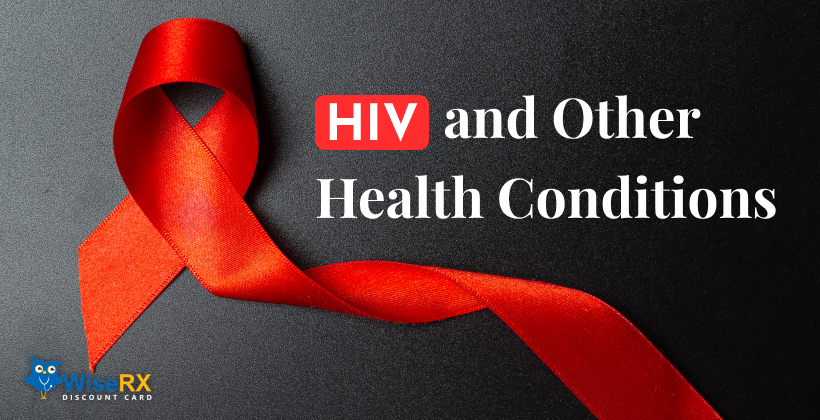
Do People with HIV Suffer from Other Health Conditions?
Many people think that if someone has HIV, they do not have other health issues. However, this is false. It is pretty standard for HIV-infected people to suffer from other health issues.
Few of these issues directly relate to HIV or its treatment, while others may be completely unrelated.
The health conditions may mean more medications, lab tests, and doctor’s visits to keep up with your health.
In case you have HIV, the best thing you can do is to stay healthy and take HIV medicine as the doctors prescribed you. You can get medicines at a discount with an rx discount card.
What are the common coinfections with HIV?
Coinfections are when a person suffers from two or more infections simultaneously. There are a few common coinfections that may have complications of HIV.
These are:
1. Hepatitis C and Hepatitis B
These liver infections are the result of a virus. Like HIV, hepatitis C virus (HCV) and hepatitis B virus (HBV) may transmit sexually or by injection medication use. Thus, about one-third of people with HIV in the US may be coinfect with either HCV or HBV. Leaving it untreated may lead to liver disease, liver failure, and liver cancer.
2. Tuberculosis
Tuberculosis (TB) is a disease caused by germs spread through the air from a person with untreated TB disease. TB usually affects the lungs. However, it may also end up affecting the other body parts. It may also lead to serious health problems if you leave it untreated.
3. Opportunistic infections
These infections occur more frequently or are more severe in people with weak immune systems, like people with HIV. Taking HIV medicines is like as per the prescription; staying in regular medical care along with lab tests are the key to staying healthy and preventing infections.
Other health conditions associated with HIV
People with HIV are living longer than ever. But when HIV is controlled well with medications, people with HIV may have other health conditions that may sometimes complicate HIV treatments.
For example:
1. Chronic Inflammation
It is part of the body’s natural process to fight against infection or injury. When the damaged tissues release the chemicals, white blood cells start repairing.
Symptoms of chronic inflammation include pain, warmth, and redness. It is damaging when it occurs in healthy tissues or lasts too long. If you know chronic inflammation, it may persist for months or even years.
2. Mental health conditions
People whose lives are affected by the mental health issues like anxiety, depression, or the psychological effect of physical abuse, sexual abuse, or bullying are at a greater risk of getting HIV. Depression is the top common mental health condition that people with HIV face. Depression may range from severe to mild, and the symptoms of depression may affect your daily life. Both HIV-related medical conditions and HIV medication may contribute to depression.
3. Substance use disorders
Alcohol use may damage the brain and body, putting a person at greater risk of transmitting or getting HIV. They may also make it challenging for people with HIV to take their medications as per the prescriptions. However, behavioral health services and treatment are available.
4. Medication Side Effects
Few people experience short-term side effects from HIV medicines, like vomiting and nausea. Other people may experience side effects from HIV medicines that may continue for a long time, like increased risk of kidney disease and cardiovascular disease. You should see your healthcare provider regularly and discuss the side effects your may experience. Never skip, cut down, or stop taking your HIV medicines unless your healthcare provider tells you to. Your provider will work with you to develop a plan to manage the side effects or may recommend that you change the medicine.
Conclusion
HIV is a virus that may affect the immune system. It may damage the immune system without proper treatment, increasing the risks of other infections and leading to possible complications across the body.
However, antiretroviral therapy helps lower the amount of HIV in the body, which prevents immune system damage. The treatment has led to opportunistic infections, which may become less common in people.
FAQ’s
1. Can people with HIV live a healthy life?
Many people with HIV live healthy and long lives if they get and stay right on the treatment. There will be a period of adjustment they may face. People diagnosed may feel many emotions like hopelessness, sadness, and anger.
2. Is HIV curable?
No, there’s no cure for HIV. However, the good news is that you can control it with the proper treatment. Many people can get control of the virus within six months. HIV treatment doesn’t prevent transmission of other sexually transmitted diseases.


